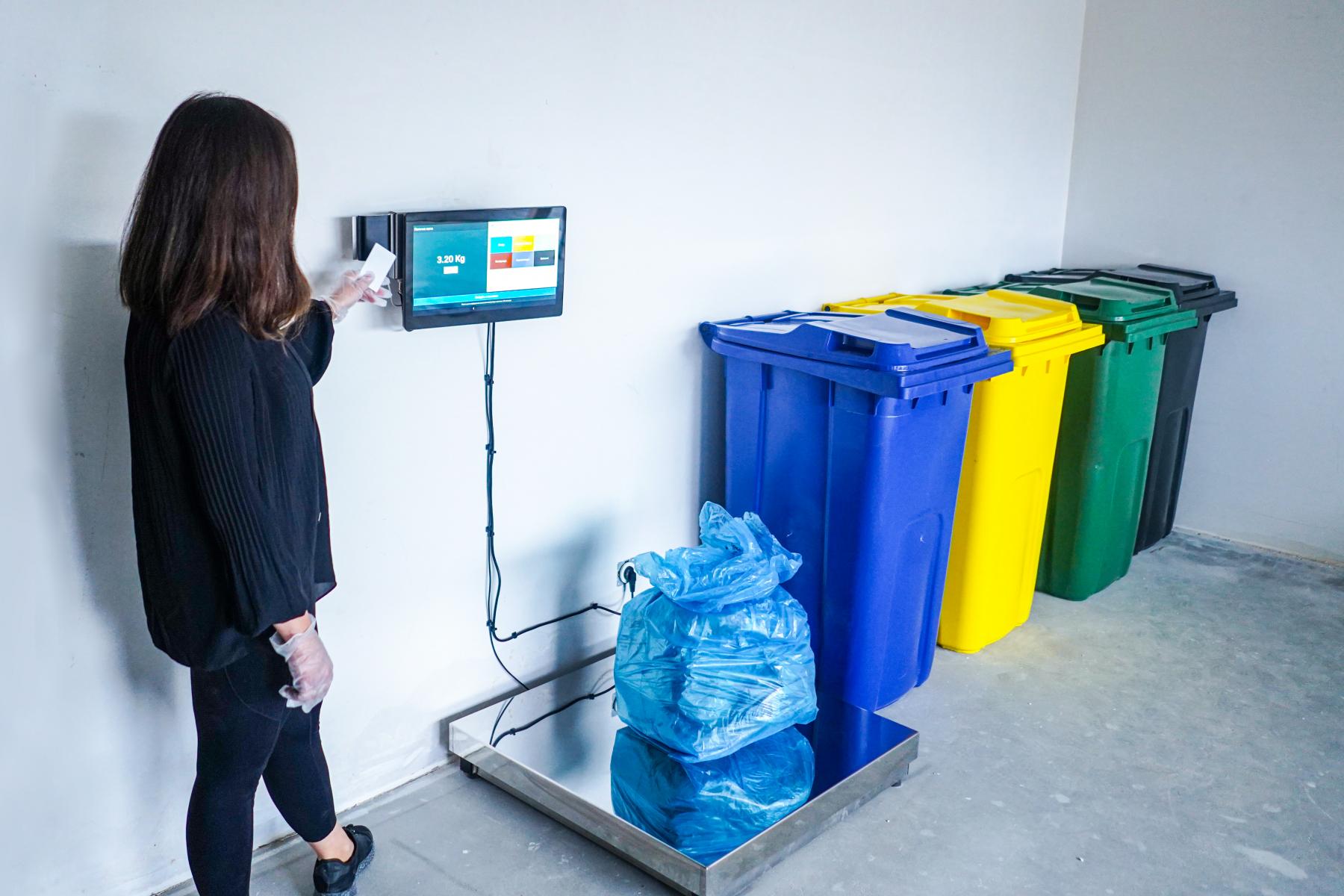Equilibrium becomes first building in Bucharest to implement digital WasteTracker system
Equilibrium, part of Skanska’s portfolio of office buildings, has become the first building in Bucharest to adopt the innovative WasteTracker system, a digital solution designed to enhance waste management and sustainability. This new system, developed in partnership with the startup WasteTracker, allows tenants to track and measure their waste output before collection, facilitating more accurate ESG reporting and promoting responsible waste management practices.
WasteTracker is a user-friendly tool specifically designed for the real estate sector. It integrates a weighing terminal, which uses employee access cards, with an analytical system to record the weight of waste produced before it is placed in building containers. Tenants have direct access to the data through the system, enabling them to monitor how much waste is generated by their operations and visualize the associated carbon footprint, categorized by waste type.
This system is designed to support tenants in refining their waste management strategies. With detailed analytics at their disposal, tenants can work with WasteTracker to identify key areas for improvement and promote best practices in waste reduction, reuse, and segregation. The WasteTracker solution represents the first such innovation in Europe and is being rolled out across seven Skanska buildings in Central and Eastern Europe, including Equilibrium in Bucharest, Wave in Gdańsk, Brama Miasta in Łódź, and multiple projects in Warsaw and Prague.
“Equilibrium is leading the way in Bucharest by introducing a digital waste monitoring system,” said Tamara Guleryuz, Leasing & Asset Manager at Skanska. “The WasteTracker system, now installed in both Equilibrium buildings, allows us to weigh and track waste before it reaches collection bins. Not only will this help with ESG reporting, but it also offers tenants valuable insights into their waste production, enabling them to take action to improve their practices and ultimately reduce our collective carbon footprint.”
This move aligns with Skanska’s broader commitment to sustainability and innovation in property management across the region.









